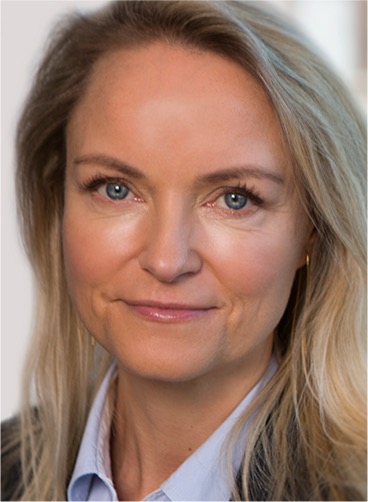VP Securities’ investment in the T2S platform offers a number of opportunities for business growth and expansion. To take advantage of the opportunities the T2S platform affords, VP is embarking on a new strategic direction; one that will strengthen its core business and bring more value to customers.
In this interview, Maria Hjorth, Deputy CEO at VP Securities, speaks about VP’s new strategy and what issuers and investors can expect from VP over the next few years.
VP’s new post-trade model is actually a part of a larger shift in VP’s overall strategic direction. Can you elaborate on this new strategy?
Yes, I can. Instead of just looking at our new post-trade model in isolation, we wanted to look at how the model would fit into VP’s overall strategy. We have learned that key industry trends such as margin pressure on the core CSD business, regulatory changes, and technological innovation are leading to a search for growth in ancillary business. The scope of the strategy process was to develop the strategy for VP’s future, enabling greater efficiencies, growth opportunities and profitability.
Additionally, interest from market participants in value-added services creates an opportunity for VP to follow clients along the value chain and offer outsourcing or utility services with particular priority on standardisation, STP and cost efficiency.
You mentioned offering value-added services. What new services have you identified?
We will be expanding into three new business areas. In the future, we will offer our
customers
1) new utility services,
2) regulatory reporting and related services, and
3) data information services.
Why these three areas?
If we take the first area, we can see that market participants are under pressure to reduce operating costs. Typically, more than 50% (McKinsey & Company) of those costs are driven by mid- and back-office functions. We’re in a position to help the market participants reduce some of these costs by examining their value chain and identifying areas related to VP’s services that can be outsourced as utility services that VP could provide.
We believe that we are the natural partner, as we cover some of these back-office functions already. We know our customers, and we understand their business. We have a significant in-house technology base, which means we’re able to handle tasks that are significantly more complex than the typical outsourced services. We have the infrastructure and technology in place to be able to optimise these services and offer lower cost.
In terms of regulatory reporting, we can see that regulations continue to impact the financial sector. The upcoming Shareholders’ Rights Directive II is just one example. It makes sense that, rather than each market participant individually developing reporting solutions, we develop a solution or service that all our customers can use. With data services, we see a trend in many sectors where they are investigating how they can use data to optimise their business performance. We can help our customers use data to benchmark their performance in relation to their peers, for example, in how efficiently they can process settlements. This type of analysis can help our customers to become more effective in their business.
Regarding data services, will VP develop these services alone, or is it possible that you will engage with other companies to develop a data service offering?
We are definitely open to partnerships with other companies working with data services, FinTech and start-ups as well. Companies working in this space are more than welcome to reach out to us.
When can VP’s customers expect to see these new services become available?
The strategy will be implemented over the next three years, and in on-going cooperation with our customers. In that regard, we know that many of our customers are currently looking at their internal systems and functions to see how these can be optimised. We want to encourage them to think of VP as a partner in this process. We would like to work together with our customers to help them find smarter, more cost-effective ways of carrying out their back-office functions. Our goal is that we can develop these cost-sharing models together.
With this expansion, some might worry that VP’s core business will be neglected. How would you respond to those concerns?
We will never forget our core business, which is why we’ve allocated a 10+ million-euro investment in our platform. This investment will make sure that our platform is future-proof. We have also carefully selected growth areas that are natural extensions of our core business. In doing so, we can ensure that we grow responsibly with a continued focus on our core business of issuance, post-trade, safekeeping and investor services.
Get to know Maria Hjorth
Maria Hjorth joined VP Securities as Deputy CEO in February 2019. In addition to increasing VP’s commercial focus, Maria Hjorth is looking at ways to build data-driven business models and examining how VP can help the financial sector to innovate existing business processes.
She joined VP Securities after five years as CEO of Mercer Denmark, where she helped the company increase its revenue, profitability as well as customer and employee satisfaction. Maria Hjorth has also worked in investor relations at Danske Bank, and has had a number of managerial roles within corporate banking and business development.
Maria Hjorth holds an MSc and a BSc in Economics from University of Copenhagen, and an MSc in Business Psychology from University of Westminster in London.













